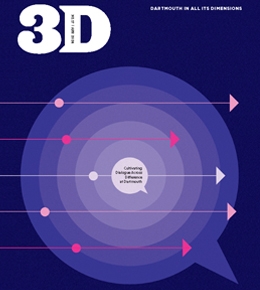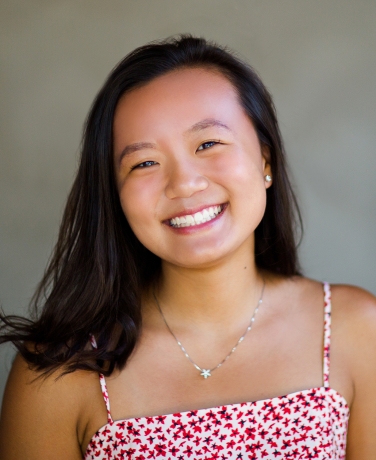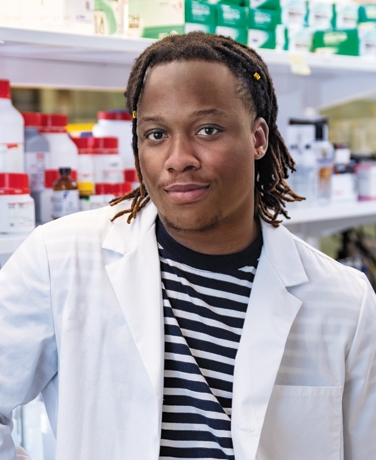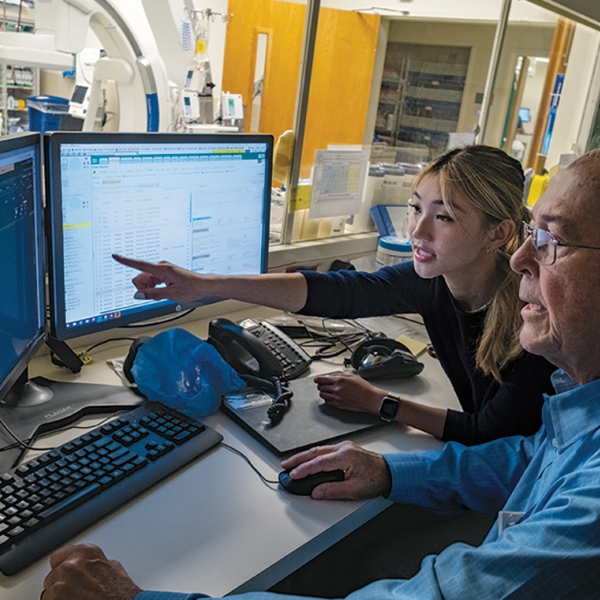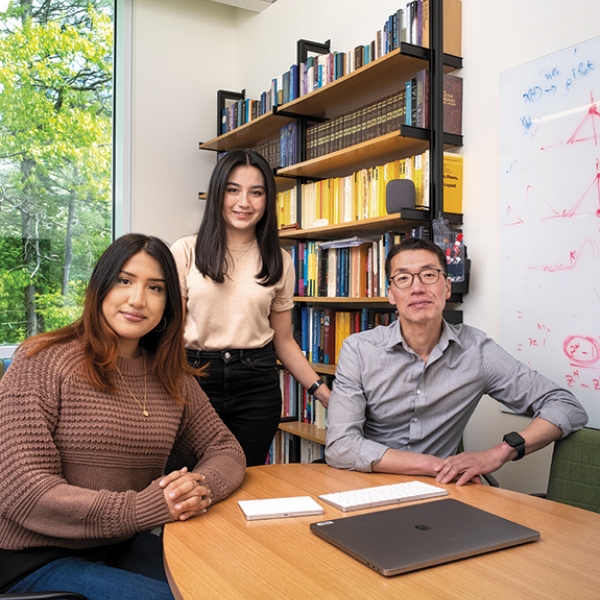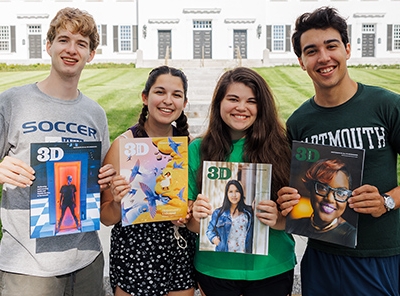Moses Matanda '25 is tinkering with new ways to bridge the gap between technology and medicine. During his high school years, his younger sister was often hospitalized. "I knew that I wanted to pursue medicine because of the health problems my family faced," Moses remembers, "but I wanted to do it at a larger scale. So, I asked myself, 'What am I good at?'" He liked math and science in high school, so he took Mathematical Concepts in Engineering during his first term at Dartmouth—and was immediately hooked.
Moses next took Design Thinking, a popular engineering course that teaches students how to devise creative, user-focused solutions to problems. The class, he says, deeply informed his belief in a patient-centered approach to health care. "I started thinking, 'How can I bring the best of engineering into medicine? How can I use the skills and concepts I've learned in my engineering classes to create better patient outcomes?'"
Moses quickly dove into research through the First Year Research in Engineering Experience, a program that offers first-year undergraduates early exposure to hands-on work and mentorship in the field of engineering. Under the guidance of engineering professor Solomon Diamond, Moses and his teammates won the Brieanna S. Weinstein Engineering Design Prize for their work to improve a neonatal continuous positive airway pressure (CPAP) interface.
Dartmouth's Health Professions Program, which supports students and alumni with career goals in health care, helped Moses find an internship at Columbia University Irving Medical Center in New York City during the summer after his first year. "There, I shadowed physicians who thought the same way as engineers," he says. "They identified specific needs and devised multiple personalized solutions to patients' problems." The following summer, Moses joined the Summer Undergraduate Research Program for Underrepresented Scholars at Mount Sinai Hospital, where he investigated the impacts of the HIV-1 viral protein Vif on the human genome.
Today, Moses is the Alumni Outreach and Mentorship Chair for Dartmouth's chapter of the National Society of Black Engineers and is applying to medical school with the support of the Health Professions Program. Looking back on his college career, he credits Dartmouth's liberal arts curriculum, which encourages students to take classes across a wide range of subjects, with pushing him in new academic directions. "After taking an African and African American Studies class, I decided that I wanted to know more about my history, where I came from, and the history of my people," says Moses, whose extended family lives in Zambia and Zimbabwe. "If I want to help better serve them in my future, I need to know about what happened in the past."
Photograph by Don Hamerman, in a lab in the Engineering and Computer Science Center

